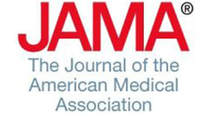Resources |
Resources |
 A recent study from Harvard researchers published in the Journal of the American Medical Association (JAMA) found that implementation of the Medicare prescription drug program was followed by a $1,200 decrease in nondrug medical spending among those who previously had limited drug coverage. While researchers were unsure about early indications that newly insured seniors were in fact spending more on prescription drugs than previously, this study found that seniors were experiencing “reduced out-of-pocket costs, and improved medication adherence.” Medicare Part D, therefore, showed significant differential reductions in nondrug medical spending. This reduction in non-drug spending achieved approximately $13.4 billion in overall savings during the first full year of Part D. Comments are closed.
|
AuthorWrite something about yourself. No need to be fancy, just an overview. Archives
March 2021
Categories |
Learn more |
What's New? |
|
